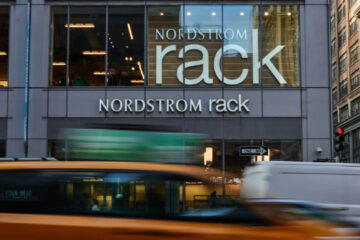A combination of high home prices, elevated mortgage rates, and low buyer demand has slowed the housing market over the last year, contributing to financial distress in the home improvement market.
Previously occupied home sales in 2024 declined to their lowest level since 1995 with 4.06 million sales, which was 0.7% lower than 2023.
💵💰Don’t miss the move: Subscribe to TheStreet’s free daily newsletter💰💵
Consumers have been discouraged from buying homes, as the U.S. median home price rose 4.7% to $407,500 in 2024, while the 30-year mortgage rate increased to about 7% in early 2025 before dropping to the current average of 6.65% on April 5, according to Bankrate.
Related: Huge auto parts brand files for bankruptcy liquidation
The situation may not change much this year, as the U.S. housing market is expected to remain largely frozen in 2025 with 3% or less growth, according to J.P. Morgan’s housing market outlook released in February.
The sluggish housing market affected home improvement retailers last year, such as LL Flooring which filed for Chapter 11 bankruptcy on Aug. 11, 2024, seeking a sale of its assets.
LL Flooring agreed to sell up to 219 stores and the company’s Sandston, Va., distribution center to a subsidiary of private equity firm F9 Investments for a $1 million fixed amount, an inventory price of 57% of landed cost value of acquired inventory and assumed cure costs.
Then this year, huge HVAC system installation, repair, and maintenance company Air Pros filed for Chapter 11 bankruptcy protection on March 16, also seeking a sale of its assets as it faced defaults on prepetition secured debt, underperforming business units, and ongoing operational challenges.
TimberHP’s parent Go Lab Inc. files for Chapter 11 bankruptcy.
Getty Images
TimberHP declares bankruptcy
Now, the parent company of TimberHP, the only manufacturer of wood fiber insulation in the U.S., filed for a prearranged Chapter 11 bankruptcy after reaching a restructuring support agreement with its secured lenders and mechanics lienholders that would eliminate $100 million in debt.
Related: Popular whiskey brand files for Chapter 11 bankruptcy
TimberHP owner Go Lab, which distributes ‘s TimberBatt, TimberFill, and TimberBoard wood fiber insulation products, filed its petition on March 25 in the U.S. Bankruptcy Court for the District of Delaware, listing up to $1 million in assets and about $120 million in debts.
More bankruptcies:
Popular restaurant and bar chain files for Chapter 11 bankruptcyPopular athletic shoe chain files for Chapter 11 bankruptcyAward-winning cosmetics brand files for Chapter 11 bankruptcy
GoLab filed for bankruptcy after suffering a series of setbacks arising from cost overruns and delays in the construction and retrofitting of a former Madison, Maine, paper mill into its new wood fiber insulation manufacturing plant, according to a declaration from CEO Matthew O’Malia.
Inflation and supply chain issues from the Covid-19 pandemic that caused cost overruns of $30 million, as well as unexpected engineering problems to retrofit the paper mill, were blamed for the debtor’s bankruptcy filing.
The debtor listed about $100 million in secured debt, about $6 million in subordinated debt, $7.4 million in unsecured loans, and $7.3 million in unsecured trade debt in its declaration.
The Madison-based debtor’s largest creditors include Small Enterprise Growth Fund, owed about $3.8 million; Globe Machine Manufacturing Co., $2.9 million; and Finance Authority of Maine, owed $1.6 million.
Go Lab seeks $10 million postpetition loan
Go Lab is seeking approval of up to $10 million in debtor-in-possession financing provided by its prepetition bondholders, led by affiliates of BlackRock, that will convert to a $19 million exit facility, according to the declaration.
The debtor would pay 9.5% per annum interest and a participation fee of about 19.6% of newly issued common stock of reorganized Go Lab Inc.
The DIP financing and exit facility are expected to save 50 workers’ jobs and create an additional 66 jobs.
The total U.S. insulation market to the construction industry is expected to reach $12.2 billion in 2025, with the residential market reaching $4.1 billion and the commercial market totaling $4 billion. The Madison facility’s maximum production capacity will generate about $170 million per year or about 2% of the residential and commercial markets, the declaration said.
Related: Another iconic restaurant chain files for Chapter 11 bankruptcy


